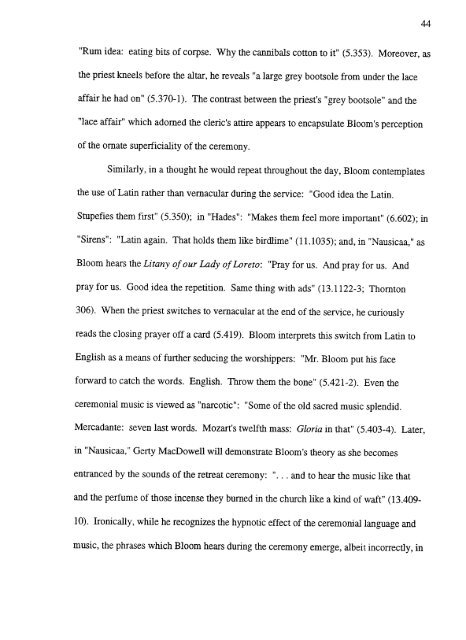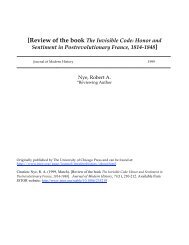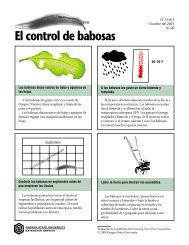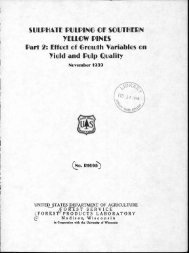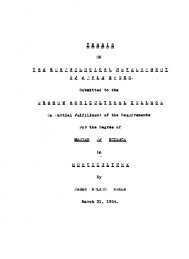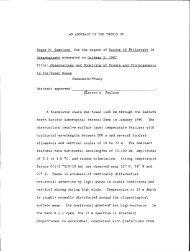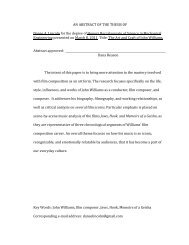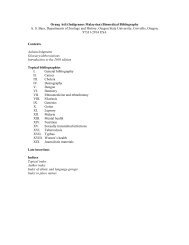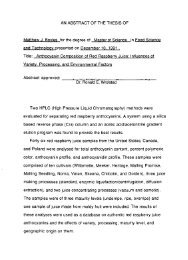Faubourg Saint Patrice - ScholarsArchive at Oregon State University
Faubourg Saint Patrice - ScholarsArchive at Oregon State University
Faubourg Saint Patrice - ScholarsArchive at Oregon State University
Create successful ePaper yourself
Turn your PDF publications into a flip-book with our unique Google optimized e-Paper software.
"Rum idea: e<strong>at</strong>ing bits of corpse. Why the cannibals cotton to it" (5.353). Moreover, as<br />
the priest kneels before the altar, he reveals "a large grey bootsole from under the lace<br />
affair he had on" (5.370-1). The contrast between the priest's "grey bootsole" and the<br />
"lace affair" which adorned the cleric's <strong>at</strong>tire appears to encapsul<strong>at</strong>e Bloom's perception<br />
of the orn<strong>at</strong>e superficiality of the ceremony.<br />
Similarly, in a thought he would repe<strong>at</strong> throughout the day, Bloom contempl<strong>at</strong>es<br />
the use of L<strong>at</strong>in r<strong>at</strong>her than vernacular during the service: "Good idea the L<strong>at</strong>in.<br />
Stupefies them first" (5.350); in "Hades": "Makes them feel more important" (6.602); in<br />
"Sirens": "L<strong>at</strong>in again. Th<strong>at</strong> holds them like birdlime" (11.1035); and, in "Nausicaa," as<br />
Bloom hears the Litany of our Lady of Loreto: "Pray forus. And pray for us. And<br />
pray for us. Good idea the repetition. Same thing with ads" (13.1122-3; Thornton<br />
306). When the priest switches to vernacular <strong>at</strong> the end of the service, he curiously<br />
reads the closing prayer off a card (5.419). Bloom interprets this switch from L<strong>at</strong>in to<br />
English as a means of further seducing the worshippers: "Mr. Bloom put his face<br />
forward to c<strong>at</strong>ch the words. English. Throw them the bone" (5.421-2). Even the<br />
ceremonial music is viewed as "narcotic": "Some of the old sacred music splendid.<br />
Mercadante: seven last words. Mozart's twelfth mass: Gloria in th<strong>at</strong>" (5.403-4). L<strong>at</strong>er,<br />
in "Nausicaa," Gerty MacDowell will demonstr<strong>at</strong>e Bloom's theory as she becomes<br />
entranced by the sounds of the retre<strong>at</strong> ceremony: ". . . and to hear the music like th<strong>at</strong><br />
and the perfume of those incense they burned in the church like a kind of waft" (13.409<br />
10). Ironically, while he recognizes the hypnotic effect of the ceremonial language and<br />
music, the phrases which Bloom hears during the ceremony emerge, albeit incorrectly, in<br />
44


